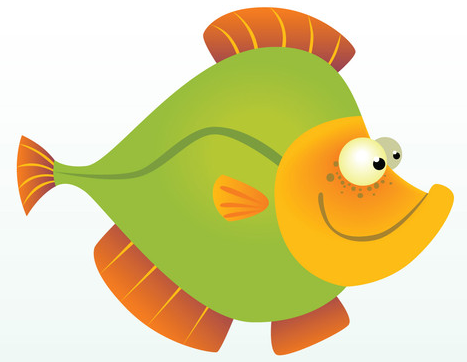Mental Game Fish?
- By Jared Tendler
- January 20, 2014
- Comments Off on Mental Game Fish?
If you are reading this article, it’s likely you are not a poker fish. Most people who read poker articles, and in particular strategy articles, tend to work hard on their game and are hard to associate with the term ‘fish’ – which we tend to use to describe purely recreational players.
You may, however, be a Mental Game Fish.
There is so much strategy advice out there on the technical aspects of the game that it is not hard for a novice player to become a very tough competitor in a short amount of time. The same cannot be said for the mental side of poker. The psychological aspects of the game are still shrouded in mystery and misunderstood – even though mindset issues like tilt can have such a profound impact on your bottom line.
In my book, The Mental Game of Poker, I use the term Mental Game Fish to highlight how far behind most players’ mental games are from their technical poker game. Don’t be too concerned if you are a mental game fish – most poker players are, including some of the very best.

You may be a solid winning poker player who recognizes the shortcomings of a bad player, but as far as the mental game is concerned, you are likely no different. A solid player is a mental game fish if they:
- Change a proven winning strategy because they are running bad/hot.
- Never recognize when someone has played well against them and/or believe everyone they play against is bad and just gets lucky.
- Try to win every hand.
- Think the outcome of a hand can be changed by shouting, praying, or playing a favorite hand.
- Get frustrated when a bad player plays badly and they even educate them as to why they are bad.
- Read a poker book cover to cover and think they know everything in it.
- Watch some of Phil Galfond’s training videos and think they should now be able to crush the game like him.
- Believe that they are cursed or that other people are luckier than they are.
- Play badly when the stakes are too small for them to care.
- Tell bad beat stories to anyone that will listen, while doing nothing to improve how they react to bad beats.
If any of these sound familiar, your next question should be, “how do I stop from being a mental game fish?” The answer is simple, the same way you stopped being a poker fish—by working on your game. Only in this case you’re working on your mental game.
Just as is true when improving your poker game, the quality of instruction and the amount of work put in often determines the winners and the losers. Don’t think there are losers in the mental game? How many players do you know who are very skilled but can’t stop from busting their account or destroying big chunks of their bankroll? The mental game can’t make you more knowledgeable about how to play QJo from the button at an aggressive table, but it’s what allows you to consistently utilize the knowledge you already have.
Think about how much your big poker mistakes cost you. These are caused by mental errors not poker errors. You know the right play. You’re just not executing what you know because of a flaw in your mental game. Didn’t know these big mistakes were caused by mental game issues? This is further proof that you’re a mental game fish, and it’s time to get to work.



